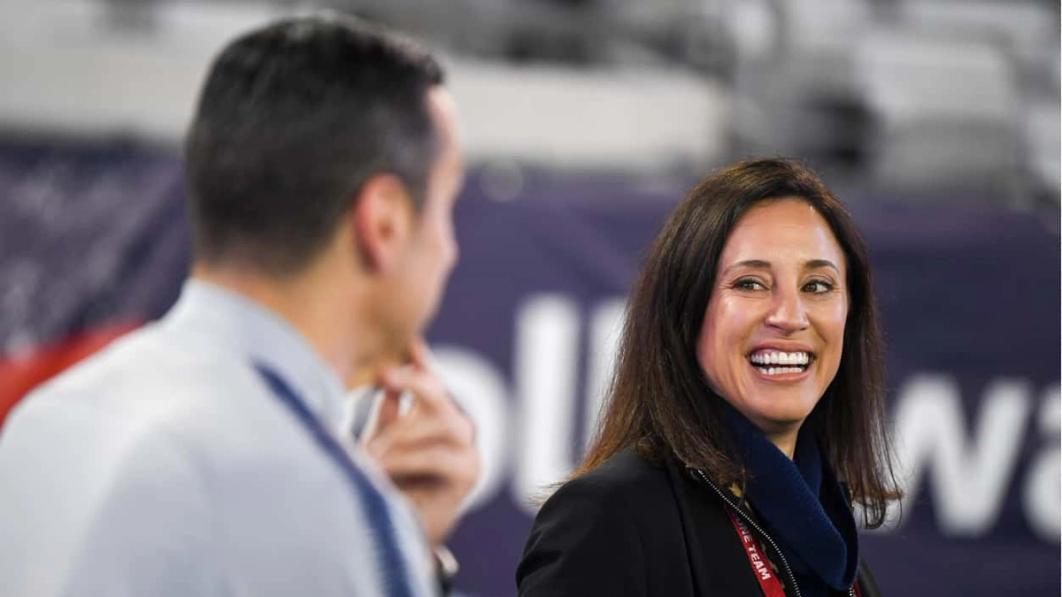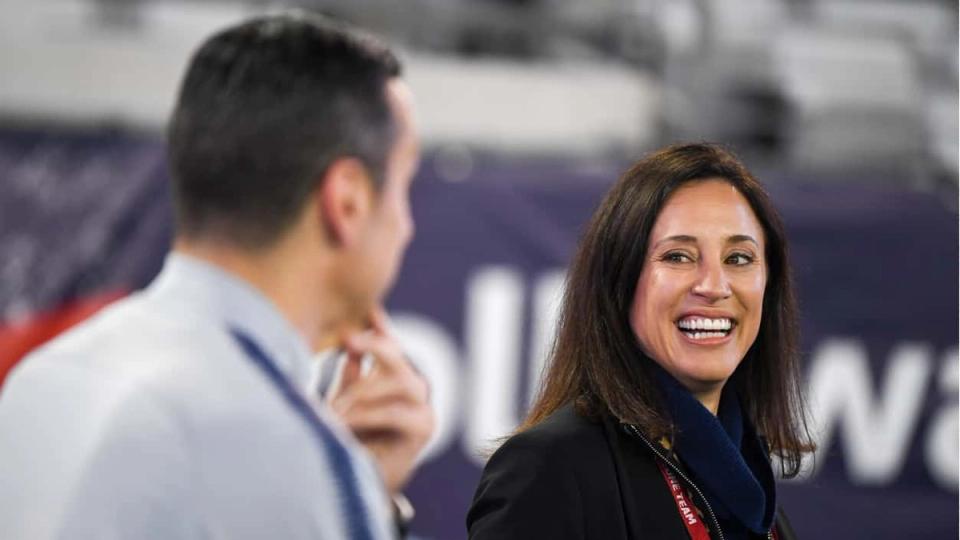What We Learned From The U.S. Soccer Podcast: Episode 1 with Kate Markgraf
Lessons, Stories and Insights from The USWNT General Manager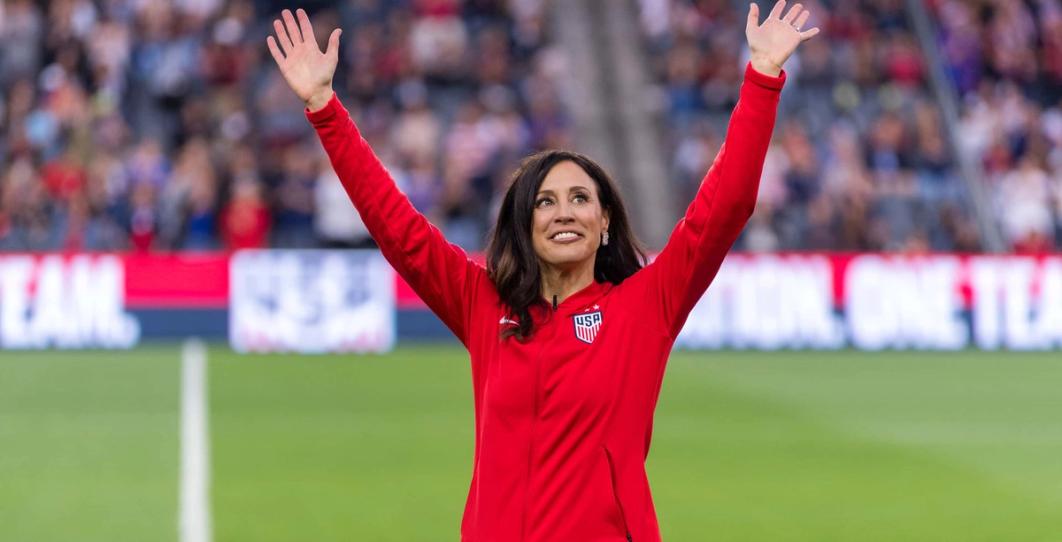



On Friday, May 8, U.S. Soccer launched “The U.S. Soccer Podcast”, a weekly show providing listeners with insights into the U.S Women’s, Men’s, Youth, and Extended National Teams, as well as interviews with leaders from the Federation and the sport at large. USWNT General Manager Kate Markgraf sat down with hosts Jordan Angeli and Charlie Davies to share stories from her prolific playing career and discuss her current role with the U.S. Soccer.
Here are five things we learned from the interview:
The aerial prowess and fearlessness of Abby Wambach and ability to destroy of Julie Ertz combined with razor-sharp technique and the ability to bend a ball with both feet. No, this is not a hypothetical “build-a-player” exercise, it’s was simply Michelle Akers.
“She really is the one player I think that could last on any single roster from here until whatever roster the U.S. Women’s National Team puts out,” Markgraf said.
A prolific striker and Golden Boot-winner at the 1991 FIFA Women’s World Cup, Akers shifted to the midfield and anchored the WNT to championships at the 1996 Olympics and 1999 Women’s World Cup, all while battling significant injuries and almost debilitating chronic fatigue syndrome. Akers’ legacy is one of talent, leadership by example and tenacity.
“Without her as our six during the [1999] World Cup, there’s no way we would have won,” added Markgraf, “She’s still one of those players that is the G.O.A.T. to me.”
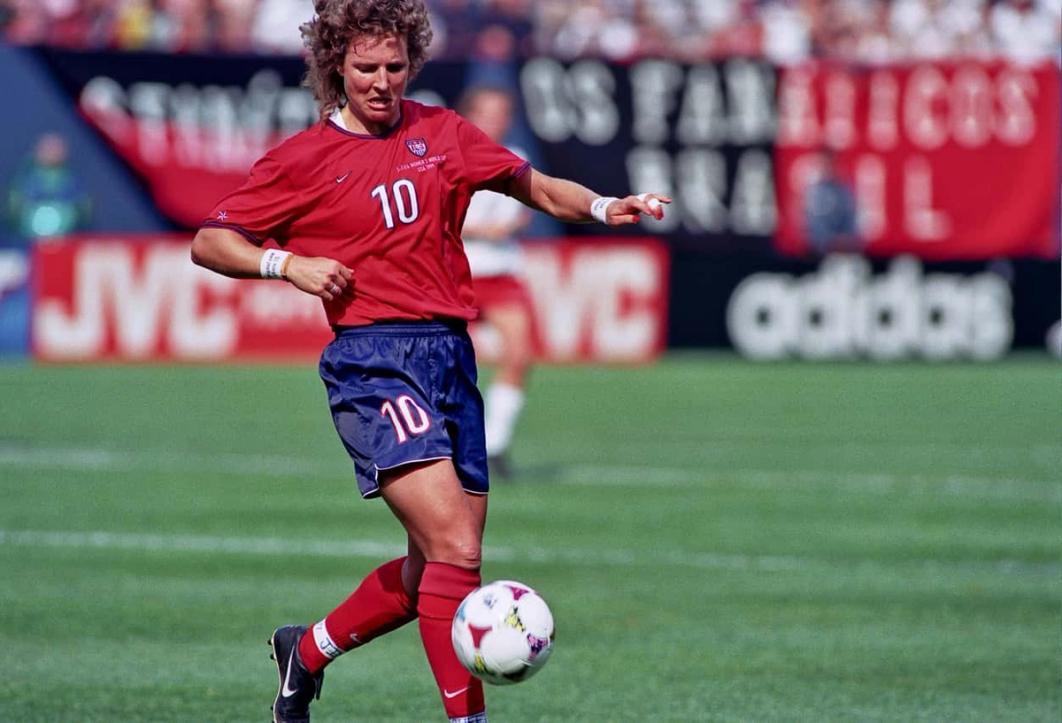
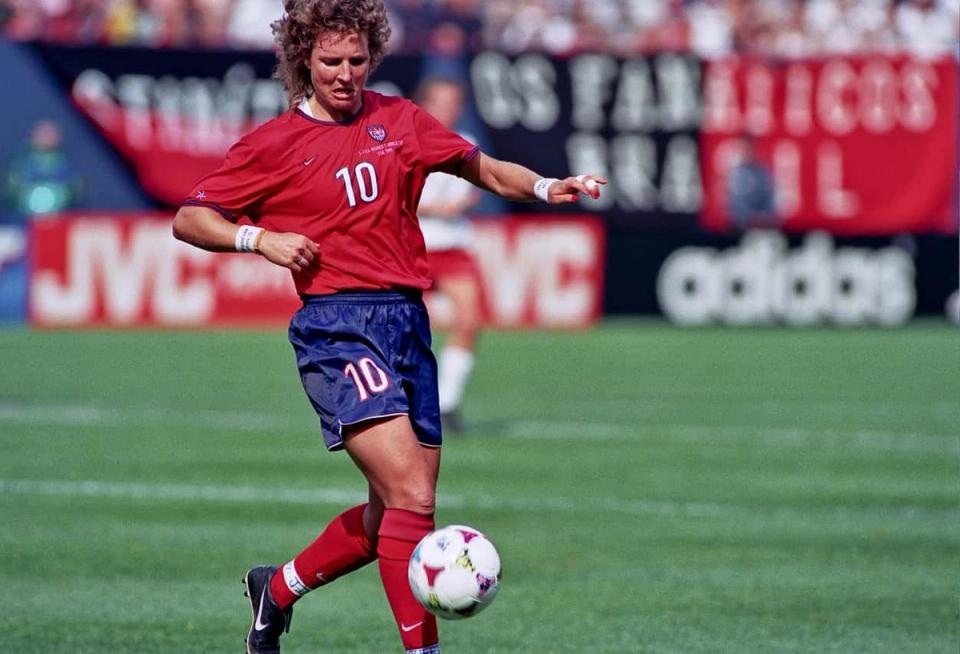
The images of Brand Chastain and her teammates celebrating after winning the 1999 World Cup on penalty kicks are among the most iconic in sports history. Power, elation, and emotion on a showcase in a way that was groundbreaking for women’s sports at the time.
But for Markgraf, one of the youngest and least-capped players on the 99ers roster, there was another powerful feeling at the moment Chastain’s spot kick struck the back of the net: relief.
“In the first overtime, I went up to [USWNT head coach Tony DiCicco], and said ‘Please take me out, I can’t take a penalty kick. Please take me out.’,” Markgraf recalled. “And he’s like, ‘Don’t worry. I got you, I’ll take you out.’ But he was never going to take me out. He was lying to me so I could just forget about it and get through the second overtime period.”
In fact, Markgraf made a 50-plus yard run to snuff out a China attack at the very end of overtime in that World Cup Final to preserve the tie.
When the second overtime closed scoreless and match headed towards penalties, Markgraf was slated to kick tenth, one slot ahead of goalkeeper Briana Scurry. Yet a pivotal save by Scurry on China’s third penalty kick and successful attempts by the first four kickers for the WNT – Carla Overbeck, Joy Fawcett, Kristine Lilly, and Mia Hamm – set up decisive penalty for Chastain.
The rest is history.
“It was the biggest relief more than joy,” said Markgraf. “But then my second reaction was, ‘Oh my god, we did this.’”
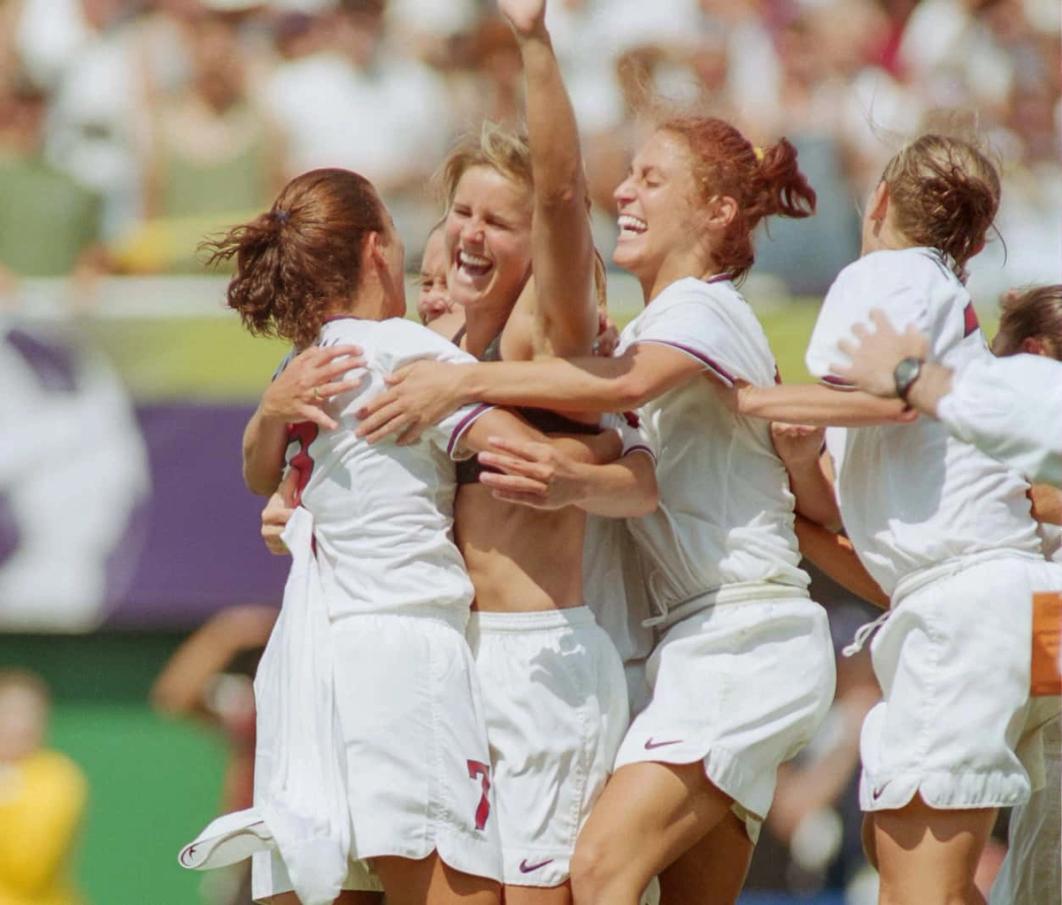
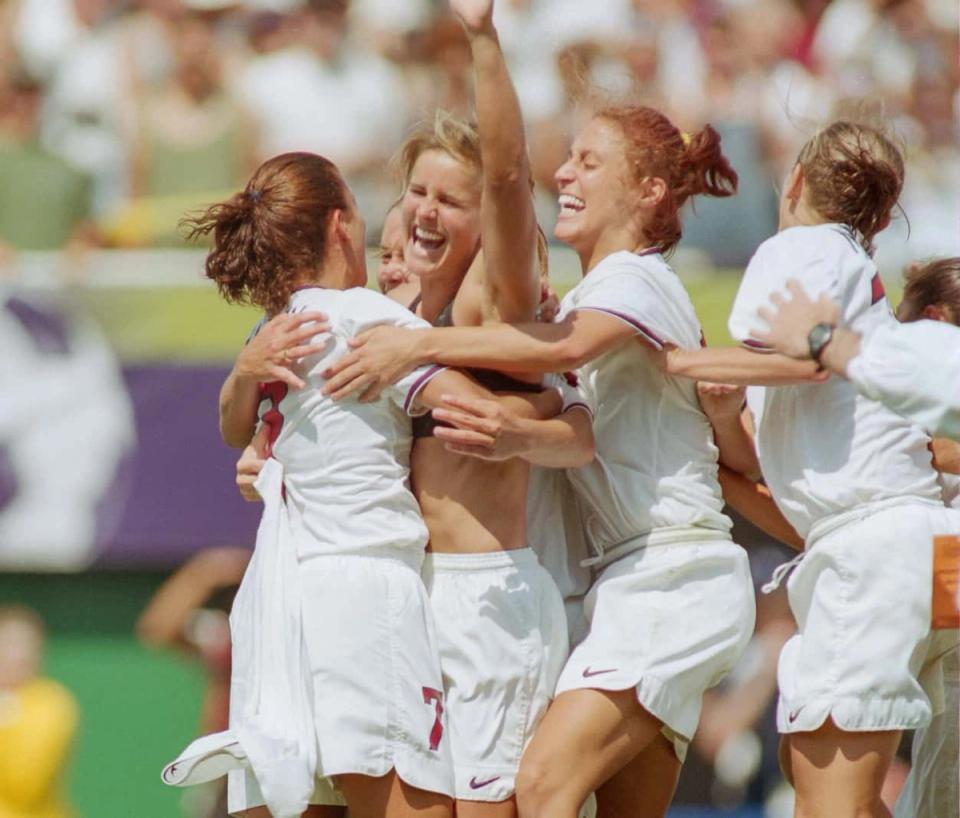
Along with her World Cup title as a member of the ‘99ers, Markgraf also has a pair of Olympic gold medals to her name, helping lead the United States to victory at the 2004 Summer Games in Athens and again in Beijing in 2008.
Yet for Markgraf, those two medals carry different meanings and memories.
“[2004] was for other people and [2008] was for me, because I did it as a mom,” said Markgraf. “In 2004, Mia [Hamm], Julie [Foudy], and all those guys were retiring, so it was actually an easier tournament to play in, because we were playing for them. I had always played for people. In 1999, I played for those guys, ’04 for was for them.
“In 2008, our team all came together, but we were all able to pursue our own individual dreams along with the collective,” explained Markgraf. “That was the first tournament I actually played for me, so that one has a different meaning for me.”
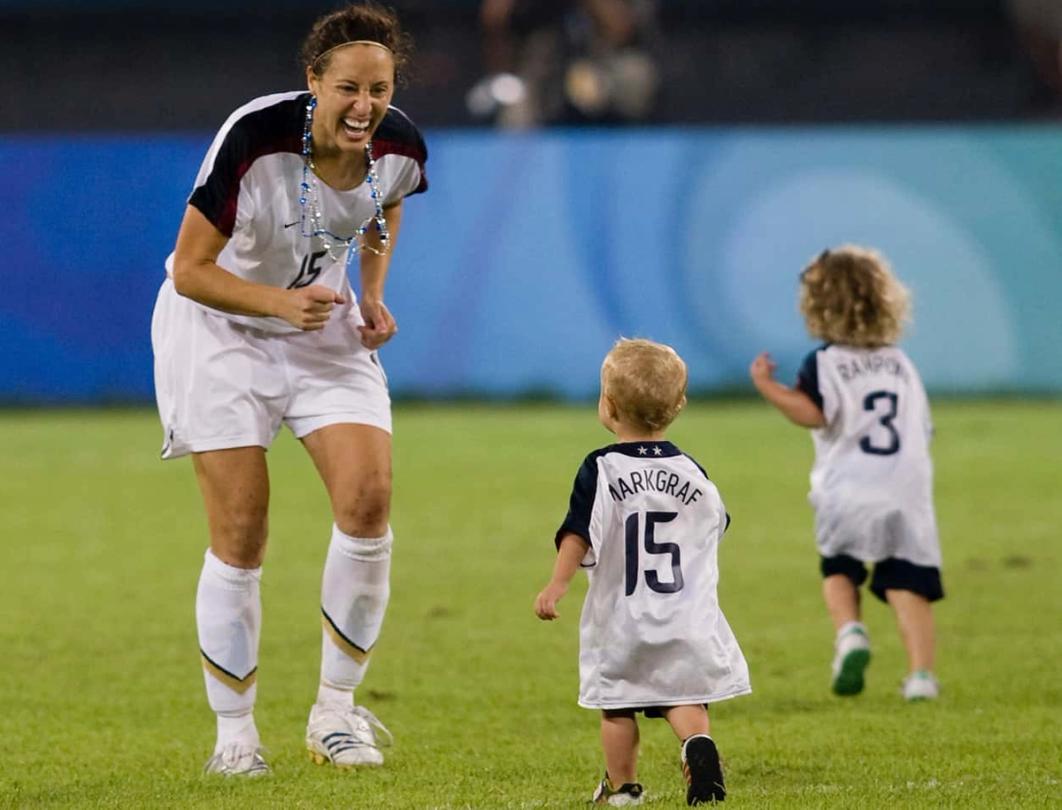
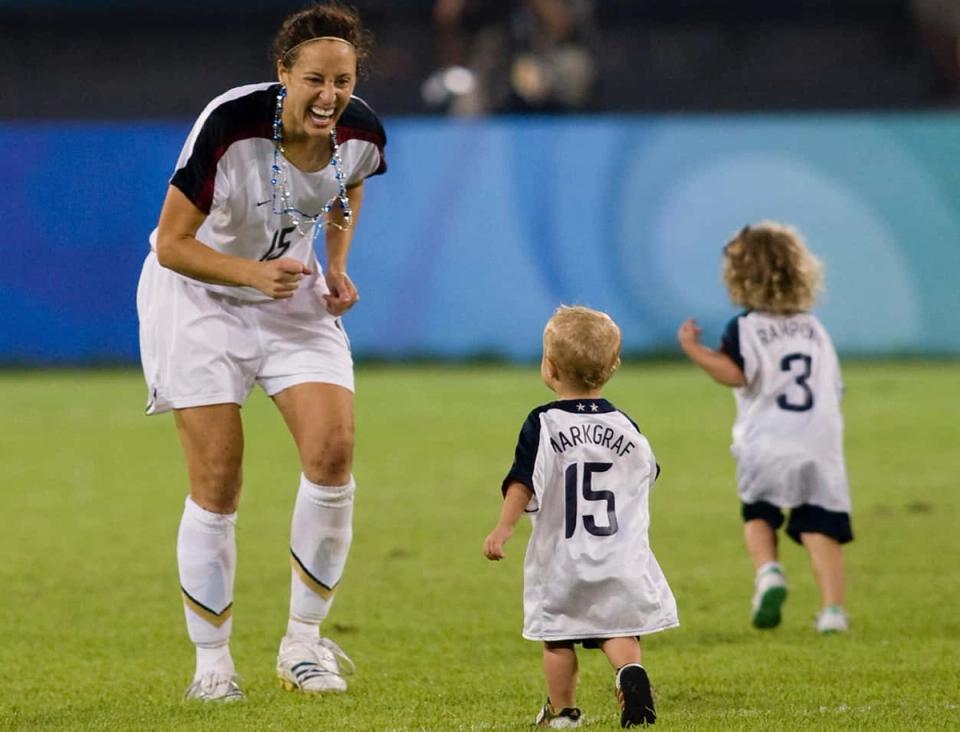
Markgraf has always had a passion for learning. After retiring in 2010, she started explore the mental side of the game.
“I wanted to explain why there were players that I played with that were better than me that would amazing for one or two camps, but then couldn’t handle the pressure,” Markgraf explained. “And I wanted to understand how people like me, that maybe lacked composure in key moments of the game, could still find a way to play.”
The longing for understanding led Markgraf to two master’s degrees – one in Kinesiology and one in Educational Psychology – and published research on the influence of Grit, a psychological metric predictive of success in elite domains.
“Helping people achieve their goals – whatever it is at the end of the day - by giving them strategies is really, really rewarding,” said Markgraf.
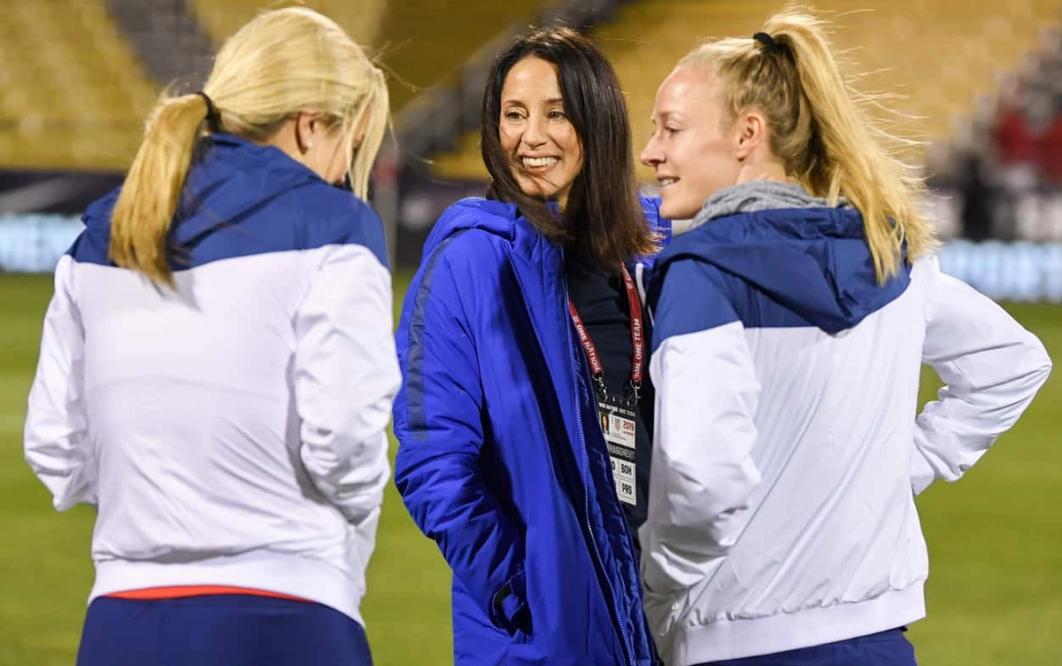
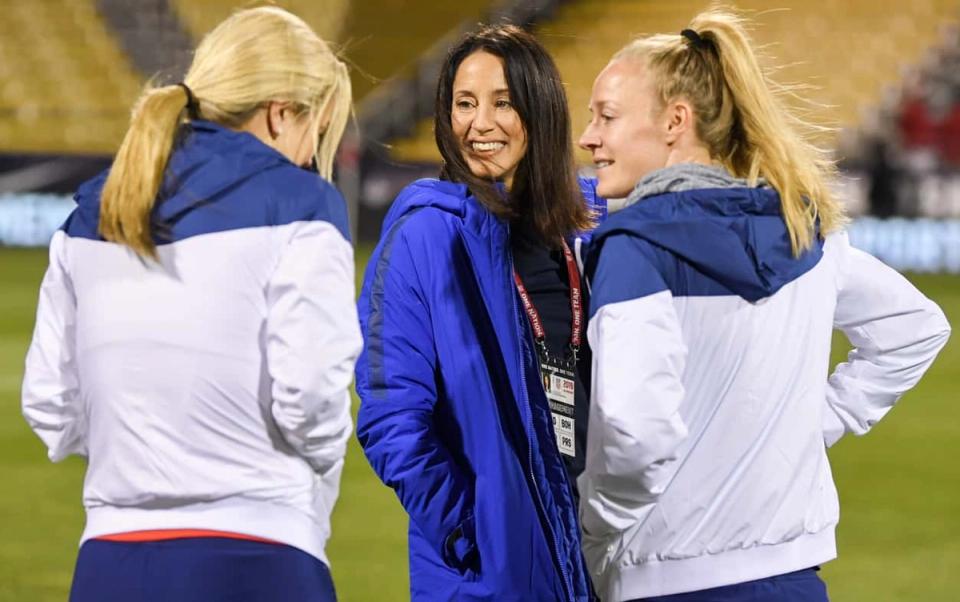
While her ability to stymie the opposing attack made her a mainstay on the WNT defensive line for 12 years, Markgraf’s latest role as the first General Manager of the U.S. Women’s National Team is all about connections. From high-level calls with FIFA, discussing scheduling of future opponents or analyzing the needs at the developmental level, Markgraf views her role as the bridge between experts both within and outside of U.S. Soccer.
“My skill set coming from playing, then going into school and working in the realm of academics is basically jack-of-all-trades, master of none,” said Markgraf. “I understand every department because I need to be able to connect everybody. That’s what I enjoy doing.”
Markgraf’s first major task as General Manager was connecting WNT with a new head coach, which resulted in the hiring of Vlatko Andonovski.
“I found someone that thought a little differently and outside the box” explained Markgraf. “For a team that doesn’t need motivation to win and just needs to keep evolving a little bit, I thought this might be that spark.”
With Andonovksi off to a 10-0-0 in his WNT tenure, that connection has already proven a successful one.
